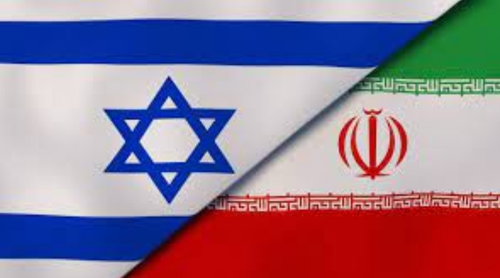For decades, current Israeli Prime Minister Benjamin Netanyahu has been warning about the “existential threat” that a nuclear-armed Iran poses to his country, asserting that military action is the only reliable means to counter it. Throughout the various terms in his long 17-year tenure as the prime minister, Netanyahu has considered, debated, and planned an all-out strike on Iran’s nuclear facilities, but never executed until the early hours of 13 June, 2025 when Israel struck Iran’s nuclear and military facilities which resulted in the deaths of several high-ranking generals and nuclear scientists.
It is clear why Netanyahu has chosen to act now. His recent statements drew on the darkest moments of Jewish history to emphasize that Israel will never allow itself to be vulnerable to a “nuclear holocaust.” His arch rival and former PM Yael Lapir has, on 15 June 2025, said that though he opposes Netanyahu on many issues, his recent decision to strike on Iran’s nuclear facilities is totally justified and timely.
Additionally, the timing is influenced by the current strategic weakness of the Iranian regime. Tehran’s influence in the region has historically depended on its allies and proxies, creating a “ring of fire” around its adversary, Israel. This network included the Assad regime in Syria, Hezbollah in Lebanon, Hamas in Gaza, and the Houthis in Yemen. However, with Assad no longer in power and Syria’s new leader gaining favour with US President Donald Trump, Syria’s focus has shifted from Tehran to Washington. Meanwhile, the Houthis have reached an agreement with the US, Hezbollah is struggling without a leader and still recovering from last year’s Israeli attacks, and Hamas has suffered significant losses, with its leadership decimated and Gaza destroyed. Consequently, there has never been a more opportune time for Tel Aviv to take on its sworn enemy.
Also Read: Clash of Titans
On the other hand, the extent of the attacks, the targets selected by Israel, and the statements from its politicians indicate that, in addition to severely crippling Tehran’s nuclear weapons programme, there is another goal: the overthrow of the Islamic regime. In a video message shortly after Israeli fighter jets launched strikes on Iranian nuclear facilities and air defence systems, Netanyahu, addressing the Iranian people directly, said: “The Islamic regime, which has oppressed you for almost 50 years, threatens to destroy our country, the State of Israel.” Israel’s objective was to remove the nuclear and ballistic missile threat, he said, but added: “As we achieve our objective, we are also clearing the path for you to achieve your freedom. The regime does not know what hit them, or what will hit them. It has never been weaker. This is your opportunity to stand up and let your voices be heard.”
It will be naive to think that Israel’s actions were unilateral, as stated by US Secretary of State Marco Rubio or as claimed by Trump himself that the US had “no involvement in the attack on Iran.” For, it is a well known fact that Israel is a proxy of the US in the Middle East and therefore any action that it takes in the region has America’s clear approval. With the post-Assad Syria under its fold, a decimated Iran will only strengthen the US position in the region vis-a-vis Russia.
Iran, on its part, counts on allies like Russia and China, who are reluctant to see the country humiliated. However, neither of these countries is willing to engage in the present conflict, and Iran’s proxies — Hezbollah, Hamas, and the Houthis — are badly beaten and forced to remain on the sidelines. As a result, Tehran could now be finding itself in a spot on how to respond to the situation.
Meanwhile, Trump, remaining true to his unpredictability, on 15 June, called for a truce between Israel and Iran. He posted on his Truth Social platform that “Iran and Israel should make a deal, and will make a deal, just like I got India and Pakistan to make, in that case by using TRADE with the United States to bring reason, cohesion and sanity into the talks with two excellent leaders who were able to quickly make a decision and STOP!” He went on to add: “Likewise, we will have PEACE, soon, between Israel and Iran! Many calls and meetings now taking place. I do a lot, and never get credit for anything, but that’s OK, the PEOPLE understand. MAKE THE MIDDLE EAST GREAT AGAIN!”
If Trump succeeds in making a deal between the two warring countries like he did in the India-Pakistan scene, not just the Middle East, the world at large can heave a sigh of relief.
